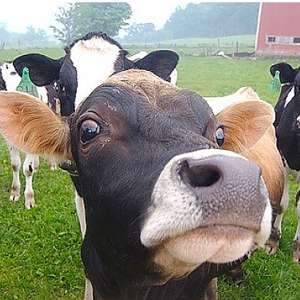Remember when Genetically Modified Foods first came out? The Internet came alive with warnings that ‘Frankenfood’ caused all sorts of diseases and scary health conditions, and would kill us all. Well, it didn’t. But millions of consumers absorbed the fake news and the false message…
 We should call Lab-Grown Meats ‘Clean Meat’ to make them
We should call Lab-Grown Meats ‘Clean Meat’ to make them
friendlier sounding and more acceptable to the masses.
The result was that, in spite of repeated patient explanations from serious scientists, vast numbers of average folks came to mistrust so-called GMOs and decided not to buy or eat them. Not only that, but misled advocacy groups gave the ‘GMO scare’ momentum and triggered demands that politicians bring in programmes to place GMO ‘warning’ labels so consumers could avoid them when grocery shopping. GMO myths have now become so widespread and generally accepted that they probably can never be eradicated. They’ve been passed down to new generations; entrenched in our culture.
Now, marketing experts warn that a similar process is taking place around ‘Lab-Grown’ Meats (LGMs), and it’s important to head that trend off at the pass or another potentially valuable development in the looming world food crisis may be demonized. At least that’s what results of a recent survey on consumer opinion about LGMs indicate.
What researchers observed
“Cultured meat has the potential to reduce the ethical, environmental, and public health burdens associated with conventional livestock farming,” says Study Lead Author Dr. Christopher Bryant of the University of Bath, UK. “Surveys show [that] hesitancy towards cultured meat centers around its perceived ‘unnaturalness’, which can lead to concerns about food safety.”
He goes on to explain that the full potential of LGMs can only be realized if consumer demand drives its growth and development.
The takeaway
Bryant and his colleagues say that the Media will play a major role in determining whether the real facts about LGMs are popularized, or whether – as with GMOs – fake news takes hold of the popular imagination and forever taints the reputation of LGMs.
“Extensive research has shown that media coverage of GM foods had a significant negative impact on public perceptions of, and behaviour towards, the technology.” Bryant warns. “As most people have so far heard little or nothing of cultured meat, this is a crucial time to assess how the framing of this innovation can impact consumer perceptions.”
How can the image of LGMs be massaged to improve consumer acceptance?
Bryant’s team surveyed a group of 480 subjects from all walks of lie to see which of three approaches to describing, or branding, LGMs received the most positive response from consumers: as (a) an innovation which benefits society, (b) a high-tech development, or (c) as very similar to conventional meat.
The ‘high tech development’ label produced the most negative result and the idea that LGMs are ‘very similar to conventional meat’ produced the most positive.
“We’d love to get away from the ‘lab-grown’ label,” agrees Tufts University researcher Dr. Natalie Rubio. “When cultured meat is ready to go, it won’t be produced in a lab at all but in a food processing plant just like existing meat alternatives and other foods.”
The Good Food Institute in particular has demonstrated that consumers are much more likely to find the term ‘Clean Meat’ appealing than more technical terms like ‘cultured Meat’ and ‘cell-based Meat’:
“Our suggestion to news media and startups is to normalize not only the name but the whole concept of ‘Clean Meat’ – which has the same taste, nutrition and basic building blocks as conventionally farmed meat. Hopefully, the texture and price will soon match too.”
My take
I hope that ‘Clean Meat’ concept catches on. I see cultured Meat as a key transitional product to help the masses make the mental and emotional transition from conventional meats to vegetable proteins, which we all will eventually have to make if the world is going to be able to feed itself by crunch time, which experts calculate will arrive in 2050 or so. And even then, ‘Clean Meat’ products could continue to provide a welcome companion to Veggie Protein products, offering dietary contrast and increasing Protein variety.
And I do know this: The who mega-shift from Animal to Veggie Proteins will still be going on long after I’m gone.
~ Maggie J.

